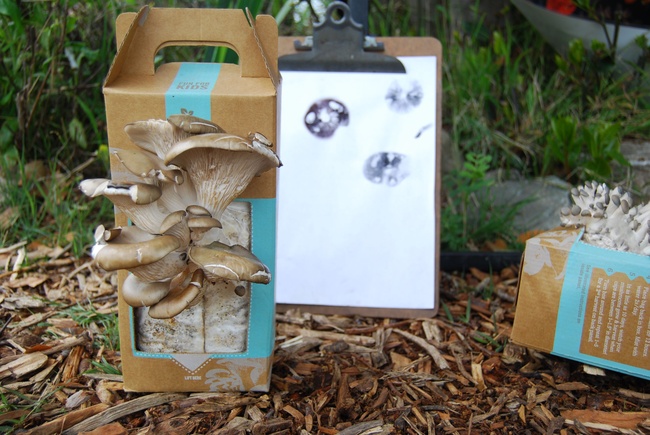Garden Science: Mushrooms

Summary
In this 6th grade science class, students observe mushrooms growing wild in the garden, handle examples of common edible mushrooms and learn about the lifecycle of fungi.
Objectives
After this lesson, students will be able to:
- Understand the life cycle of fungi and know that mushrooms are the reproductive organ
- Identify the two basic categories of mushrooms
- Understand that many wild mushrooms are not edible
Assessments
During this lesson, students will:
- Examine examples of mushrooms and identify where spores are stored
- Delineate the differences between tree companion mushrooms and decomposer mushrooms
- Recognize that wild mushrooms in the garden should never be eaten
Materials
For the Mushroom Station
- Visual aid
- Examples of edible mushrooms (Chanterelles, Oyster Mushrooms, Shiitakes, etc.)
-
Spore prints
Before You Begin
- Create the visual aid
- Collect all the materials
- Create the mushroom station by arranging the mushroom examples, spore prints and visual aid at a table in the garden
- Locate mushrooms or other fungal activity in the garden
Procedures
At the Opening Circle
- Welcome students and introduce the mushroom. Ask students what they know or think they know about mushrooms. Explain that today they will learn about two different types: decomposers and those that are part of an ecosystem.
- Divide the class into groups for garden jobs. Rotate each group through the mushroom station during garden work time.
At the Mushroom Station
- Have students read out loud the facts about mushrooms that are found on the visual aid.
- Show students examples of edible mushrooms and ask them to identify where the spores are stored. Have students examine the spore prints, and point out how plentiful and tiny the spores are.
- Invite students to hypothesize which category of mushroom the examples fall under: tree companion or decomposer.
- Explain to students that although there are edible wild mushrooms, many wild mushrooms are poisonous, and so wild mushrooms should only be eaten with a mushroom expert. Ask students if they should ever pick and eat a mushroom growing wild in the garden (No).
- If possible, point out mushrooms or other fungal activity in the garden.
At the Closing Circle
- Ask a few volunteers to share descriptions of the fungus or mushrooms observed during class.
- Ask all students to share one thing they learned about mushrooms.
Vocabulary
Decomposer
Fungus
Mushroom
Spore
Symbiosis